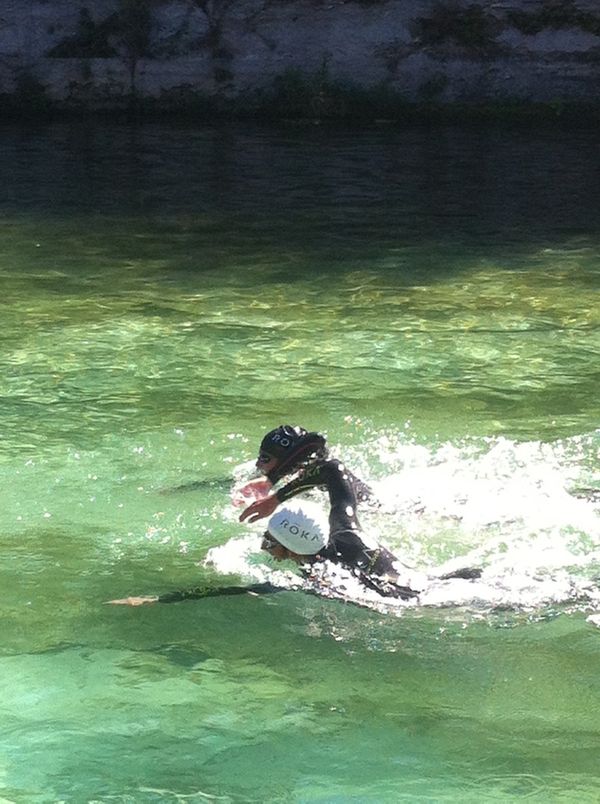Amy and I headed down to New Braunfels a few weeks ago for a Saturday and Sunday set of swim clinics. It was a little bit of a new offering for us in that we were out of the 1-1 or 'team' setting that we are typically used to when it came to on deck coaching. We had a group of 8 on Saturday and a group of 8 on Sunday. The focus was to provide each group and each swimmer something to work on. Something to build on. We'll likely head back down there for a follow-up.
The structure for each day was the same:
- 45-60 minutes of swim and instruction
- 45-60 minutes of QA covering just about anything. This was gold, we should have recorded it!
- 45-60 minutes back in the water for swim and instruction
With 16 age group swimmers in the water, we saw a range of abilities. We also saw a few things that were almost universal to the swimmers. The time suck known as the internet is full of swim discussions. Generally it consists of someone asking how they can get better with as little work as possible. I can appreciate that, but generally there are no easy ways in swimming. Add this post to the list. And, I (Brandon) get pulled in at times. Not because the information is bad or wrong, but because the reader will leave with a my way or the highway view, and it is important to speak in a way that a wide swath of athletes will understand.
For starters, there were very few 'bad' swimmers. Slow swimmers yes. Bad swimmers, not really. That seems to be the case, the self deprecating "I suck at swimming" swimmer who is ok. The other end of the spectrum is the "I swam in high school" swimmer who thinks they are Phelps...and is worse than the "I suck at swimming" swimmer.
Blah, blah, blah, get on with it. Universal suggestions...
- Look down at the bottom of the pool. Keep the head neutral. You walk looking forward, not looking at your feet or the sky. Swim the same. The back of your head should be out of the water, not buried.
- Keep your forearm and wrist connected and in line. Keep your hand 'below' the elbow at almost all times during the underwater pull. Feel resistance between the fingertips and crook of the elbow.
- Since most of us suck at kicking, keep your legs out of the way to reduce their drag. Big toes and feet close together.
- Keep your head low when breathing. One goggle in the water with your head looking to the side of the pool and not behind you.
- Breathe more and breathe earlier in your stroke.
Whatever issues you have with your stroke, they will be magnified in open water. Spend the time in the pool getting it as close to perfect for you as you are able. Is there more, absolutely. But, pick one of those above to work on during your swim session. One of the above in a session, not all of the above.
Lastly, the training talk. If we could sum it up in two bullet points it would be...
- Swim faster. Have more than 1 or 2 speeds. It's not about the dogma or terminology of the various training philosophies. Most triathletes simply need to swim faster/harder at times during their swimming. Be less concerned at times about yards, and more concerned about speed.
- Swim more. Swim more yardage or better more frequently. Not necessarily so you swim faster in a race, but so that you get out of the swim less winded and ready for the rest of the race.
I talked a little bit about coaching in the TRS Podcast. The delivery is half the battle. What one swimmer hears or coach says is the opposite of what another might hear or say yet the message might be similar. Who should you youtube? Any good swimmer. While the 'best' pool swimming stroke might not be practical for 95% of the age group triathlete swimmers, there are elements that will work.
Need a swim clinic? Let's talk.

